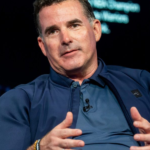Alphabet CEO Sundar Pichai has joined the glamorous ranks of the world’s billionaires, after the tech giant’s class A share price bubbled up 13% over the past month.
Pichai’s path to billionaire status has also been altered by the fact that he has sold shares in Alphabet which were awarded to him as part of his compensation package.
For example, Pichai has sold a reported $650 million in Google-owner Alphabet stock over the past decade he has served as CEO—sales that today would have amounted to more than $1 billion in gains, winning him a net worth of some $2.5 billion per Bloomberg’s index.
But at the time of writing, those shares sit at a little over $193—which would have resulted in a value of more than $6.4 million.
Google declined to comment.
But the CEOs of the world’s largest companies are not playing the highs and lows of their company’s share prices the way retail investors or Wall Street analysts may be.
Many of Pichai’s recent sales have been pursuant to Rule 10b5-1, which allows stock sales to be set up in advance by officers of publicly listed companies to avoid any accusations of insider trading.
The rule has a number of stipulations, chief among them that a formula (not a person) determines the number, price, and date of the trade. A third party who cannot be influenced by the client must also be employed to conduct the sales.
At the time, James Reda, managing director at Chicago-based consultancy Gallagher’s HR and compensation practice, said moves for such executives make absolute sense: “Ultimately, if you don’t sell the stock you’re gonna have to be like Elon Musk and some others that are putting stock up for collateral and getting these humongous loans.
“That just makes everybody more leveraged, why do that? Peel off a little stock on a regular basis and sell it.”
While Alphabet beat market expectations this week with its second quarter results, the majority of the rally behind the company at the moment comes from (no surprise) AI.
Pichai shrugged off such fears, telling investors on the call: “We’ve gone through these moments before. We have obviously always deeply invested in talent, including in AI talent, for well over a decade now. I think we have an extraordinary both breadth and depth of the talent.
“In my experience, the top people look for a combination of—they want to really be at the frontier driving progress, and so the mission and how state-of-the-art your work is matters, so that’s super important to them, access to compute resources, and access to your peers, working with the best people in the industry,” he added. “I think we are pretty competitive on all those fronts.”









